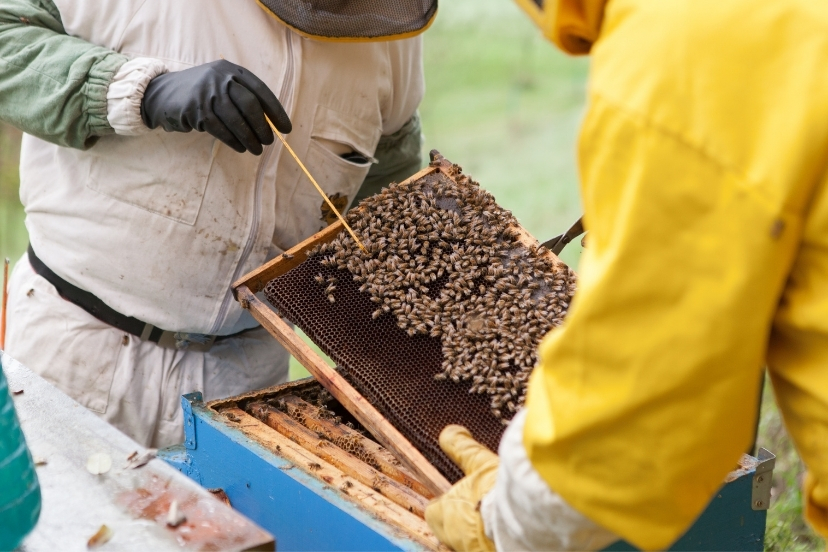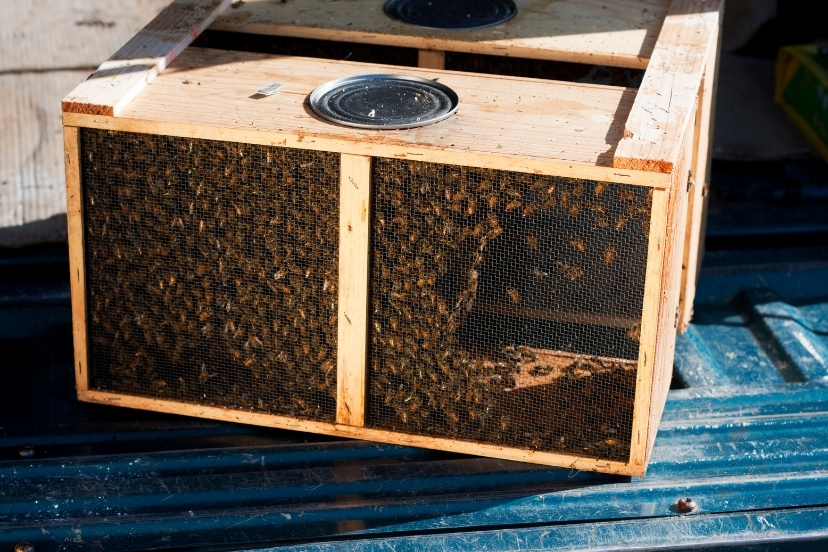There are many claimed health benefits of bee pollen.
In fact, there’s a lot of hype associated with bee pollen, with claims of bee pollen health benefits as extreme as curing cancer.
But is there any truth behind the hype?
What’s the Truth?
When a product is as hyped-up as bee pollen is, it can be difficult to determine whether a product has any legitimate value.
And compounding the difficulty is the fact that a great many people strongly believe that the health benefits of bee pollen are quite substantial.
That’s only anecdotal evidence, of course, and doesn’t prove the value of bee pollen.
But it’s also difficult to completely ignore anecdotal evidence when reported in such numbers.
Bee Pollen Health Benefits
The truth is that there is some value to bee pollen. Bee pollen does offer some very real, verifiable health benefits.
Whether you’re considering taking bee pollen, or just idly curious about it, you’ll have to decide for yourself how much value to place upon the ‘unproven’ claims about bee pollen health benefits.
But here are 3 proven, substantiated ways in which bee pollen has shown to offer value to human health…
1) The Nutritional Value of Bee Pollen
It’s certainly not ‘hype’ to say that bee pollen is one of the most nutritious foods known to man.
(Read more about the nutritional value of bee pollen.)
Bee pollen’s nutritional value is indisputable. It’s a simple matter of chemical analysis and comparison with other foods.
So bee pollen definitely has value as a nutritional supplement.
How much value it might have to you as a nutritional supplement, though, is more difficult to determine. There are many variables involved, including the source of the pollen and whether you’re already getting a complete and balanced diet.
Bee pollen is not a ‘super food,’ as some hype-filled claims would have you believe.
But it is chock-full of lots major and minor nutrients and trace elements (click on the link above for more details).
Many people feel that taking bee pollen supplements has improved their general level of health and increased their energy.
But again, that’s anecdotal evidence for which there is no supporting research (yet, anyway).
2) Bee Pollen and Radiation
Bee pollen has been found to have a mitigating effect upon the damaging effects of radiation upon both humans and animals.
A 1984 study showed that mice fed a diet containing bee pollen suffered lower death rates and less internal damage from high-dose x-rays than mice that weren’t fed the pollen.
And a 1975 study focused on women who were receiving radiation treatment for cervical cancer. Women whose diet was supplemented by bee pollen reported feeling fewer negative side effects from the radiation than the group that did not receive pollen supplements.
A comparative blood chemistry analysis between the two groups also indicated that the group receiving the pollen supplement suffered from fewer side effects from the radiation treatment.
3) Bee Pollen and Prostate Problems
A number of studies (such as this one) have shown pollen and pollen extracts to have a significant impact upon men suffering from prostatitis.
Pollen has been shown repeatedly to reduce the symptoms of prostatitis – by quite a dramatic degree in some studies.
Though research is ongoing, scientists aren’t quite sure why pollen has had such a positive impact upon this problem that plaques so many middle-aged and older men.
Bee pollen is exceptionally high in zinc, and some researchers feel that the zinc may be the key.
I Wish There Were More…
More hardcore evidence, that is, of the health benefits of bee pollen.
The use of bee pollen is gaining in popularity in recent years, and so there will likely be more studies conducted to investigate the health benefits of bee pollen.
In the meantime, we can be sure of two things:
Bee pollen is not the miracle food or miracle supplement that some claim.
But it’s also not the worthless ‘snake oil’ product decried by skeptics.
The truth about bee pollen is somewhere in between.


